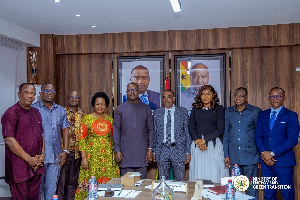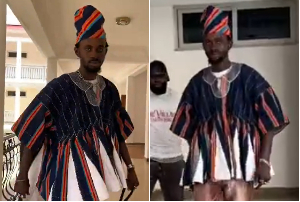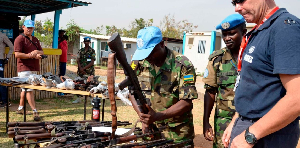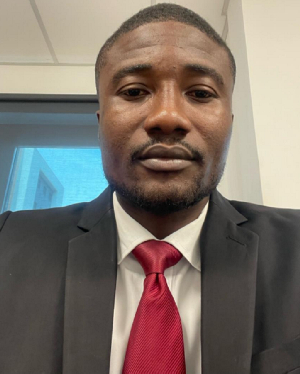Accra (Greater Accra), 17 March '99 -
President Jerry John Rawlings said on Tuesday that the government will soon come out with measures to curb illegalities in the fishing industry and called for FAO's assistance. . He said while some foreign fishing companies poach in Ghanaian waters and, in the process, destroy the nets of local fishermen, others sell at very high prices fish that are rejected in Europe. "Can you help us deal with the corruption in the fishing industry? We will take our own measures to deal with some of the illegalities but we will need help to police our waters," the President said when Dr Jacques Diouf, FAO Director-General, called on him at the Castle, Osu. Dr Diouf, who is seeking re-election for a second-term, was concluding a three-day official visit during which he held talks with top government officials. President Rawlings said there are some honest ones among those engaged in the fishing industry "but they are powerless when it comes to dealing with the crooks." "Africa cannot enter the next millennium a hungry continent. We should not blame outsiders alone for some of our ills. We should also take some of the blame." President Rawlings said in its desire to help Africa improve agriculture, FAO could seek assistance from the Chinese who have proved their competence in Ghana. He said China which has been involved in agriculture in Ghana for so long, has constructed dams for irrigation. Thus, they have the technology and the experience to impart knowledge to Ghanaian farmers. "Improving agriculture is tied to resolving conflicts in Africa as well as improving the land tenure system. We have to take a hard look at our land tenure system," President Rawlings said. Dr Diouf, a Senegalese, said FAO is initiating new policies, including decentralization to make it more effective and thanked Ghana for its support. He said some of these policies are geared towards making Africa self-sufficient in food production. One of these policies is to promote south-south co-operation in agriculture. Under it, experts in agriculture from other developing countries would be assigned to African countries to assist farmers in the field. "A lot of paper work has already been done. Now is the time to move to the field,". Mr J.H. Owusu-Acheampong, Minister of Food and Agriculture, said south-south co-operation has worked in Senegal where some Vietnamese experts are helping in rice cultivation. "Our problems in agriculture revolve around implementation. We need people to work in the field and not in offices," he added.
General News of Wednesday, 17 March 1999
Source: --












